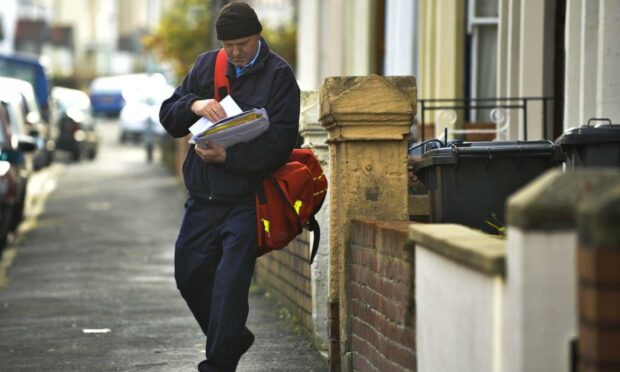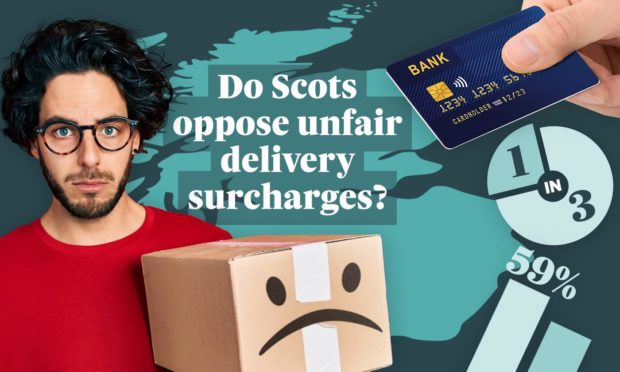Most Scots believe rural residents should not be penalised with unfair delivery charges for posting parcels – even if it means higher prices for the majority.
A new survey for support service Citizens Advice Scotland triggered renewed calls for greater regulation and transparency over pricing to end controversial surcharges for delivering to many parts of northern Scotland.
Delivery charges have become a hugely controversial issue in the regions, with the extra costs amounting to tens of millions of pounds every year.
The YouGov poll of 1,029 Scots, commissioned by Citizens Advice, found 59% said parcel deliveries should cost the same across Scotland, even if that meant that most people paid slightly more.

A further 14% believed it was unfair that rural residents in the mainland were paying higher costs, but believed it was reasonable for people living on the islands to pay slightly more.
It also showed:
- Only one in 10 Scots thought it was fair that both island and rural residents paid extra to keep prices low for everyone else.
- Two-thirds of the people surveyed did not believe they had been charged extra for their deliveries, but 19% had been.
- Of those consumers, only 4% said they had never been put off purchasing because of surcharging.
‘A clear majority’
Gillian Fyfe, from Citizens Advice Scotland, said: “Over the pandemic period, we have all seen how important access to delivery services has been.
“Ensuring consumers and businesses have fair access to those services no matter where they are is vital.
“A clear majority of Scots believe that people shouldn’t have to pay more for parcel deliveries because of their geographic location, showing this is essentially a matter of fairness which is felt right across the country not just in affected areas.”
A clear majority of Scots believe that people shouldn’t have to pay more for parcel deliveries because of their geographic location, showing this is essentially a matter of fairness which is felt right across the country not just in affected areas.”
She added: “We have set out a range of proposals that we believe can make the postal and delivery services markets fairer and more accessible and we hope industry will support them in order to ensure a better experience for all.”
Last month, we reported independent Scottish Parliament research which revealed the additional cost to Scottish adults in areas commonly impacted by parcel delivery surcharges relative to the rest of Scotland was £44.8m.
The north and north-east of the country is most impacted by the charges at a combined cost of £38.6m with those living in the Skye, Lochaber and Badenoch constituency having to pay the most in Scotland at an average of £9.1m a year.
Following calls for a crackdown, the Advertising Standards Authority issued dozens of enforcement notices last year, for issues such as hidden costs.

A UK Government spokesperson said: “The Royal Mail provides a universal parcel service at a standard price throughout the United Kingdom thanks to legislation the UK Government put in place since 2011.”
As well as calling for greater regulation and transparency in the parcels market, Citizens Advice Scotland has also urged Royal Mail to develop a social tariff to provide redirection services at reduced cost for people on low incomes and other vulnerable groups, including domestic abuse survivors and people who are homeless.
Royal Mail ‘understands’
A Royal Mail spokeswoman said: “Royal Mail understands the importance of its Redirection service to our customers.
“We work hard to keep it as affordable as possible. For example, we froze all of our Redirection prices this year.”
She added: “We offer a free Redirection service for victims of domestic abuse through our charity partner and refuge provider Hestia via its Fresh Start Toolkit initiative.
“We additionally offer a 20% concession off the standard price of a redirection for customers on Job Seekers Allowance or Pension Credit.”
